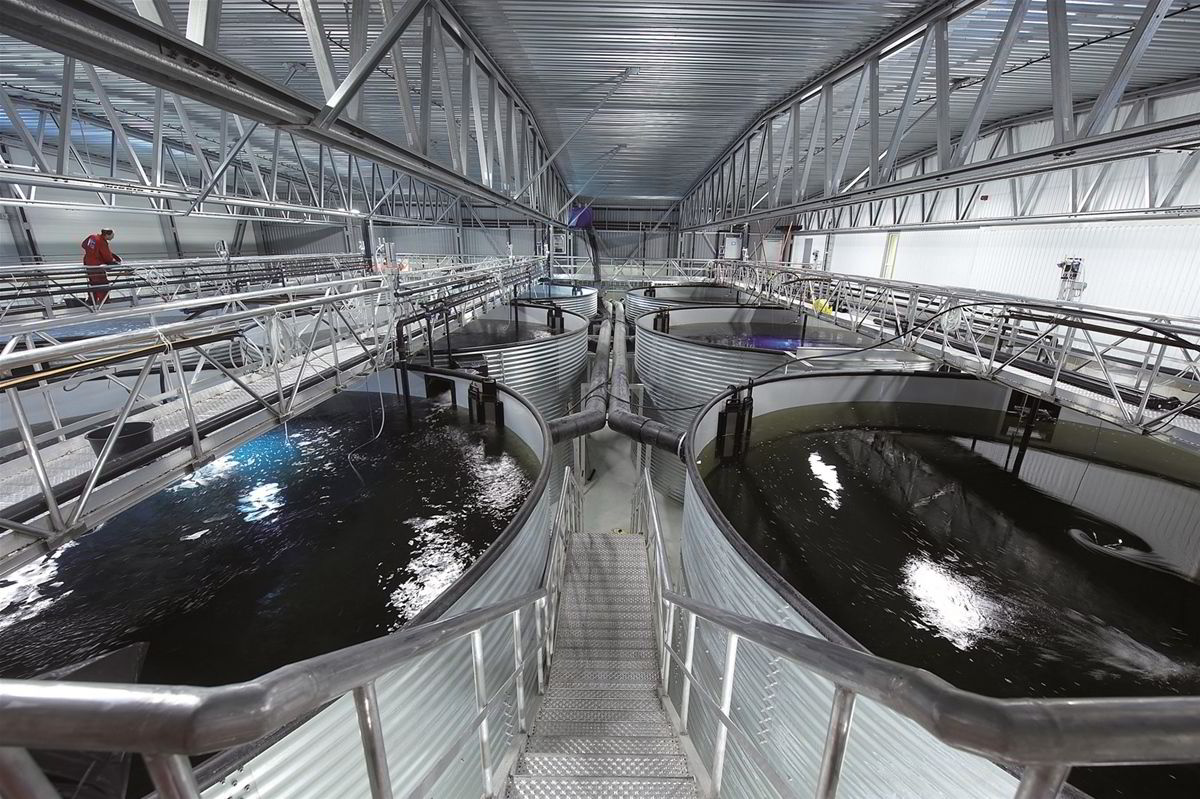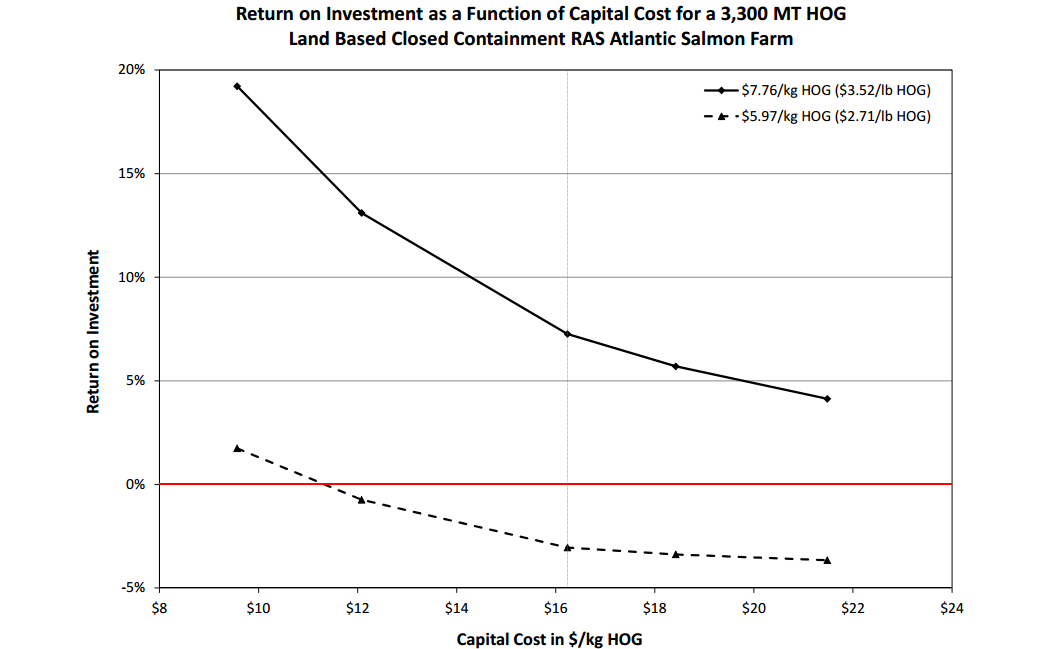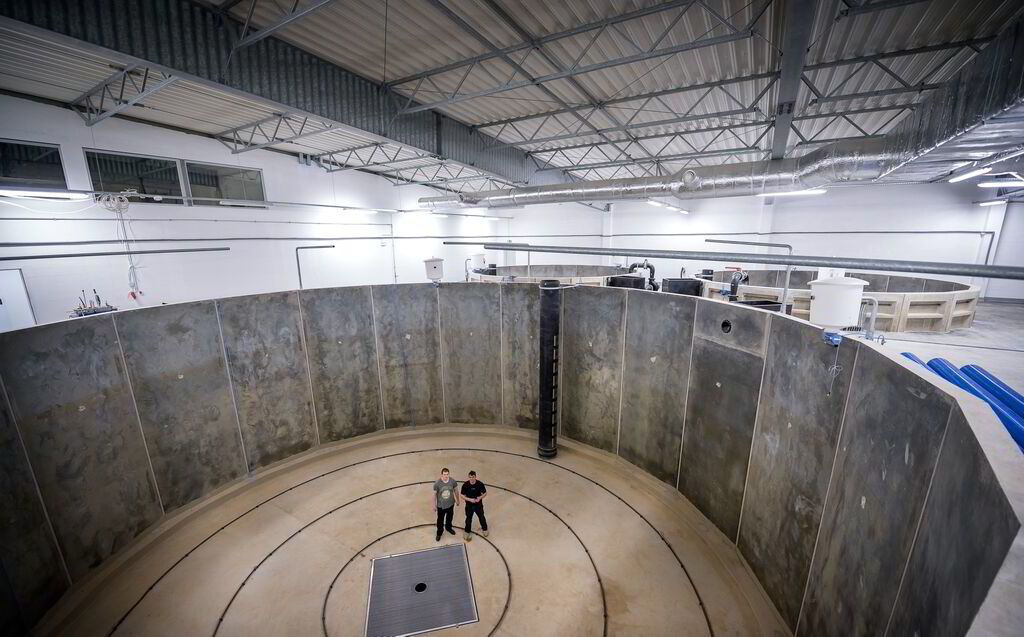A new research report from the US-based Conservation Fund’s Freshwater Institute has revealed that at scale, land-based production of Atlantic salmon could have a lower carbon footprint than an equivalent Norwegian net pen operation.
Research by the teams at SINTEF and the Freshwater Institute also suggests that -- capital costs withstanding -- production costs can be matched by taking Atlantic salmon operations on land close to markets.
The research was based on producing 3300 metric tons of head-on gutted (HOG) Atlantic salmon from eggs to US market (wholesale) using two different production systems -- land-based closed-containment recirculating aquaculture systems (LBCC-RAS) technology and open net pen (ONP) technology -- and taking into account all elements of production and live delivery to market.
The


